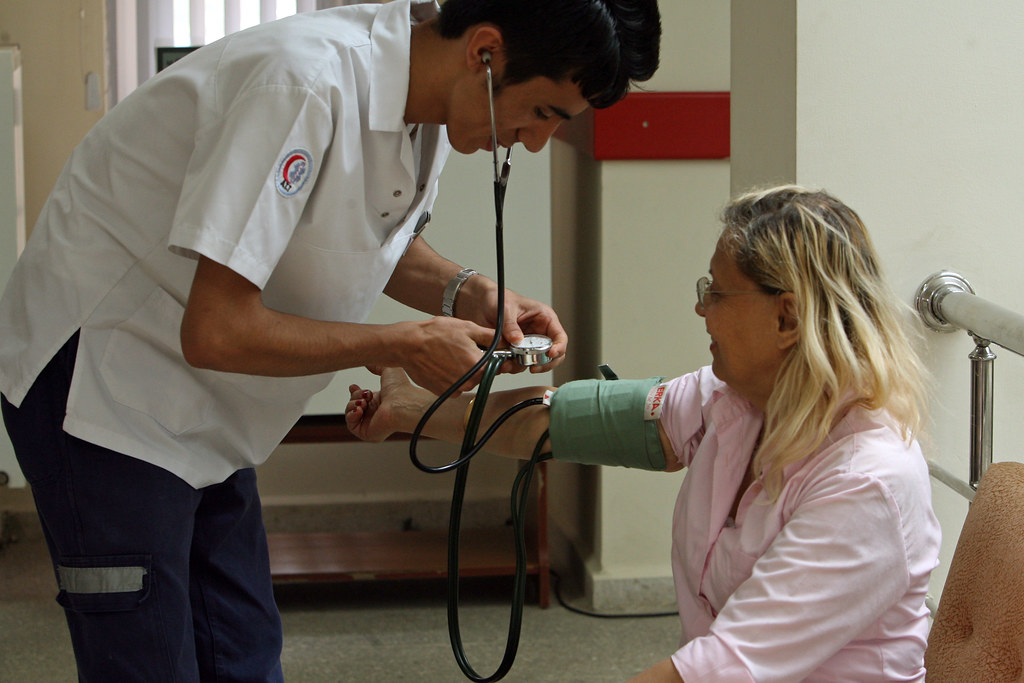Mrs. D came into the clinic because she was feeling short of breath and was very congested. She told me she has been with the same primary care doctor for almost 30 years. I admired her loyalty to the practice. When I asked her why she stayed for so long, Mrs. D explained that the doctor always cared about her perspective. When financial strain became an issue with her previous treatments, the doctor always took her insurance into account when helping her make decisions. She expressed her concern about her persistent shortness of breath, cough and congestion following her recent hospital admission for pneumonia. My preceptor listened with patience and compassion as she expressed all of her worries. He counseled her on everything he could and wrote her a prescription for some antibiotics to clear the infection. Although she was not feeling better right away, the words that the doctor shared with her provided her with comfort and she knew that the prescription he had written would help her.
Socioeconomic status, social support, access to health services and employment are all major factors contributing to the health of this patient. I believe socioeconomic status was a factor because of her ability to pay for a hospital stay limited her treatment duration. If she had more wealth, she would not have had to be discharged early and continue treatment with less effective antibiotics at home. She also feared losing her job due to illness and was forced to go back early which probably prolonged her healing process. Although the physician wrote her a note, she still had to deal with the stress of economic limitations. Additionally, the patient only had the social support of her husband who spent all day working. She could not stay home because she had to work and, even if she did, there would be no one to be there for her. Because of the patient’s insurance, she had limited access to health care services. She wanted to have more testing done but her insurance plan would not allow it.
I believe that the physician is like a mediator between the patient and the social determinants of health. The physician makes it easier for the patient to work towards better health by helping to address those factors that influence the patient’s health. My preceptor worked with the patient to inform her of other health organizations to help her afford the treatments that she needed. He also provided her with a work note to provide her with job security and take at least one worry off of her plate.
My preceptor inspired me to help my future patients in the same way he helped Mrs. D. I want to be able to consider all options when it comes to treating my patients. I will work with them to educate them so they can be empowered to do the same. I would also like to find ways to make myself more accessible for my patients, financially and in terms of having them speak freely with me. Finally, I want to advocate for my patients particularly for access to health services because I believe that health care providers have a responsibility to do everything in their power to make health care an attainable goal for their patients.
Image credit: A patient receives an intial vital signs check before seeing the doctor by World Bank Photo Collection is licensed under CC BY-NC-ND 2.0


